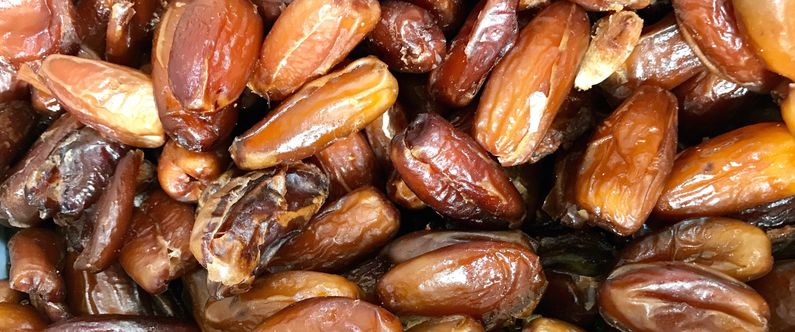WCM-Q research probes effects of date fruits on human metabolism
 Research at WCM-Q has revealed the effects on human metabolism of two popular date varieties.
Research at WCM-Q has revealed the effects on human metabolism of two popular date varieties.
A new study by researchers at Weill Cornell Medicine-Qatar (WCM-Q) has revealed for the first time the specific effects of two popular varieties of dates on human metabolism.
The WCM-Q researchers analyzed a wide range of small molecules, called metabolites, which enter the bloodstream and remain in circulation for up to two hours after eating Khalas and Deglet Nour dates.

Blood samples were collected from 21 healthy volunteers at five time-points following the ingestion of a glucose drink (used as a control), Khalas dates, and Deglet Nour dates. Each volunteer was tested after ingesting each of the three products, with intervals of at least one week between each product. The Khalas and Deglet Nour date varieties were chosen due to their distinct genetic and metabolic profiles and commercial importance.
Overall, the researchers found that 36 metabolites significantly increased in the bloodstream, of which some were specific to date fruit consumption. Several were metabolites of known polyphenols, such as caffeic acid, which can be beneficial for those with complex chronic diseases, given its anti-oxidative and anti-inflammatory properties. The researchers also found that serotonin present in Deglet Nour dates quickly broke down into its metabolite (5-hydroxyindolacetate) following ingestion. This implies that these dates are not useful as a serotonin supplement in healthy individuals for mood, appetite and sleep regulation. Compared to Khalas dates and the glucose drink, Deglet Nour also led to a sharp increase in blood sucrose levels.
WCM-Q’s Dr. Karsten Suhre, Physiology and Biophysics, was one of the lead authors of the study, which has now been published in the Journal of Functional Foods. Dr. Suhre, who is one of the world’s foremost researchers in the field of metabolomics, said: “The findings of this paper could be useful for clinicians when determining the impact of these metabolites in the management of complex diseases.”
Dates are believed to be one of the world’s oldest cultivated food crops and have special cultural significance for the Middle East. Khalas dates are prized for their deep reddish-brown color, moistness and hearty flavor, while the Deglet Nour are known as the ‘Queen of Dates’ and are famed for their light, translucent coloring and honey-like taste. Dates were recently proposed as being a ‘functional food’ as they may provide health benefits that go beyond essential nutrition and may help reduce chronic disease risk or otherwise optimize health.
Dr. Suhre added: “The design of our study is extremely versatile and could be used in the future to assess other functional foods and evaluate their potential health benefits.”
Other scientists who contributed to the study, entitled ‘Metabolic changes of the blood metabolome after a date fruit challenge,’ were Sweety Mathew, Joel Malek, Anna Halama, Sara Abdul Kader, Minkyung Choi and Robert Mohney.
This research was supported by a National Priorities Research Program – Exceptional Program grant (NPRPX-014-4-001) from the Qatar National Research Fund, a member of Qatar Foundation. The research team and Weill Cornell Medicine-Qatar are grateful for the support from the QNRF that made this translational research with implications for human health possible.
The research paper can be read in full here.